Online bingo is one of the most dynamic industries, and the reason for the many changes it constantly undergoes is the shift in audience since its transition from land-based to halls to online sites. Bingo operators need to adapt to a younger audience, offering their products on the right channel at the right time, focusing on player experience and user-friendly site design. In a detailed survey carried among more than 400 people, we analysed users’ playing and spending habits, their attitude to bonuses and ads, social media engagement, and how high design and mobile compatibility rank in players’ criteria for choosing a quality bingo site.
For years, bingo has been dubbed the pastime of the more elderly part of the population, but with its transition from land-based halls to online bingo sites, there has been a shift in the demographics of players as well. Latest data from statistics clearly indicates a steady increase in the younger segment of bingo players.
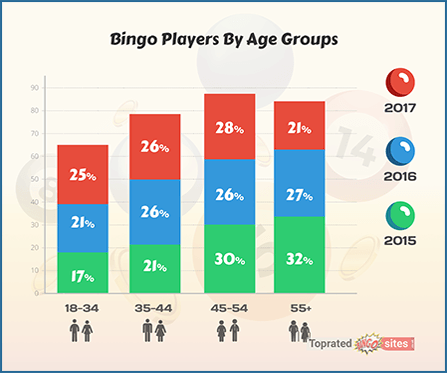
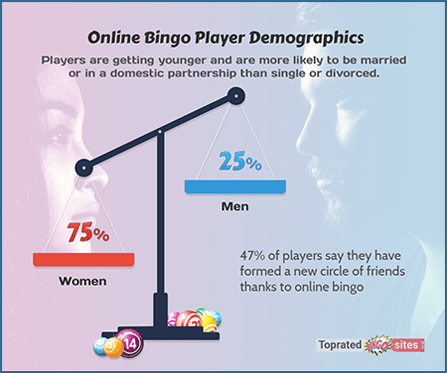
ALTHOUGH THE MAJORITY OF PLAYERS ARE WOMEN,
A MAN STILL HOLDS THE TITLE OF THE BIGGEST ONLINE BINGO WINNER


Bonuses are being ousted by site quality
Surprisingly, bonuses and promotions are no longer the most important factor for people to choose an online bingo site. When asked how they decided whether to sign up with a website or not, players said that the first thing on their list was the overall quality of the site and convenient banking options.
Being able to make swift withdrawals without worrying about time constraints and rol over seems to be a main concern for bingo players, as indicated by the 36% of people who rated cashout times as 9 or 10 on a scale from zero to one, so it shares the 4th place in the list of crucial UX factors, along with ease of registering.
Close behind is customer care with 34% of people marking it as very important. Among the deciding factors for players is of course the choice of games, and the loyalty schemes that bring return players extra benefits. As the other two main factors players have pointed out the quality of the mobile site or native app, which is hardly a surprise, considering that most players are now using exclusively mobile devices to play.

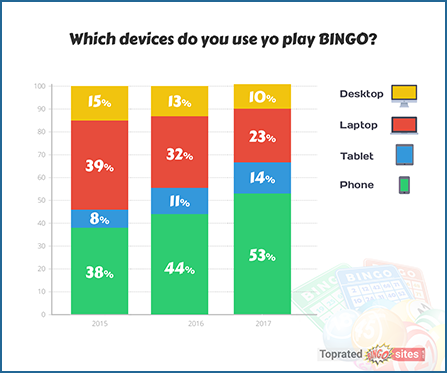
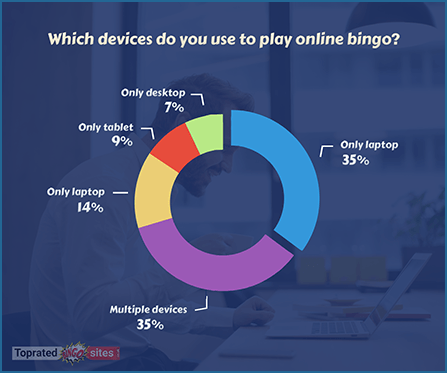
“PAY BY PHONE” METHODS LIKE APPLE PAY ARE
BECOMING WIDESPREAD AT BINGO SITES
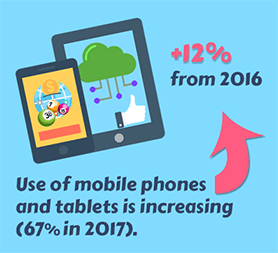
Due to the popularity of mobile devices, now mobile payment methods like Apple Pay and Boku which add the bingo deposit to the phone bill or prepaid cards and vouchers that don’t require sharing financial details online are being made readily available on the biggest bingo sites following the mobile phenomenon trend.
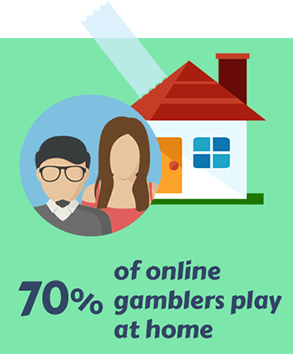
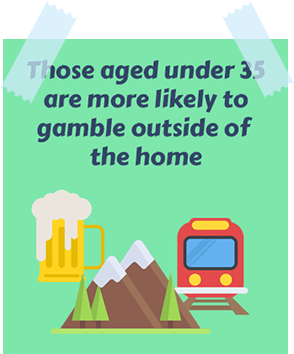
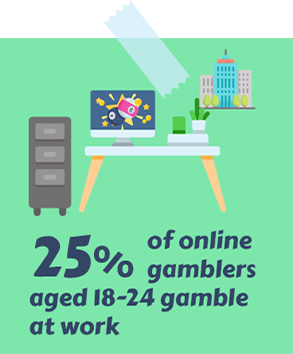
 An interesting find from the player survey is that omnichannel is becoming less of a hype and more a serious player’s need, as 39% of players have stated it’s fairly important and 19% have pointed out that it’s very important. The percentage is especially high among the younger players under 35 years of age. 75% of them say being able to use the same account for online and offline gambling is a deciding factor. When asked whether they would increase their spending if able to use the same account to gamble online and in land-based venues, 30% have said that it would increase, 65% think it will remain unchanged, and only 5% say it might decrease. The number of people who think they will increase their spending is again higher among the under 35’s, with 45% expressing certainty that they will spend more with an omnichannel account.
An interesting find from the player survey is that omnichannel is becoming less of a hype and more a serious player’s need, as 39% of players have stated it’s fairly important and 19% have pointed out that it’s very important. The percentage is especially high among the younger players under 35 years of age. 75% of them say being able to use the same account for online and offline gambling is a deciding factor. When asked whether they would increase their spending if able to use the same account to gamble online and in land-based venues, 30% have said that it would increase, 65% think it will remain unchanged, and only 5% say it might decrease. The number of people who think they will increase their spending is again higher among the under 35’s, with 45% expressing certainty that they will spend more with an omnichannel account.
User experience comes first for players, so it’s hardly a surprise that ease of registration and convenient single-wallet systems are key factors. Too many details required during registration, unclear Terms and Conditions, and the lack of multi-platform transition will make players give up registering.
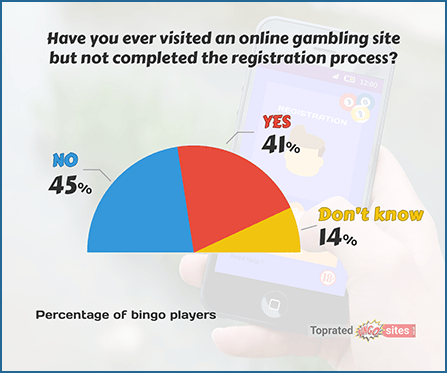
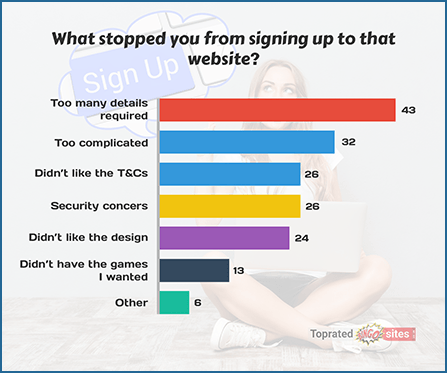
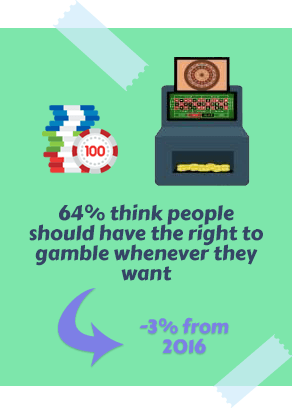

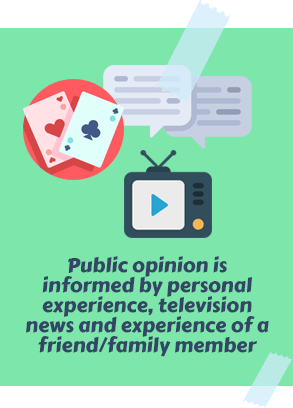
Yet another interesting trend for 2017 has been the turnaround in players’ attitude towards sign-up offers. While welcome bonuses seemed to be the main motivator behind choosing a website and making a deposit, in 2017 only 39% of surveyed players said that they would rather receive a bonus and meet wagering requirements before being able to withdraw than opt out of the welcome bonus offer and be able to cash out winnings without conditions. This comes in line with the 26% of players who pointed out the Terms and Conditions as a reason not to sign up with a particular site.
22% OF GAMBLERS HAVE READ TERMS AND CONDITIONS,
OF WHICH 27% FELT THAT THEY HAD BEEN IN A SITUATION WHERE
TERMS AND CONDITIONS HAD BEEN UNFAIR.

Playing for fun and making friends overpowers gambling for money
Since players are less likely to sign up to new sites for the welcome bonus, they tend to deposit less. Bingo is viewed more as a form of social interaction rather than gambling in order to win money, so many players will spend less on tickets trying to win and would rather enjoy the game and room chat.
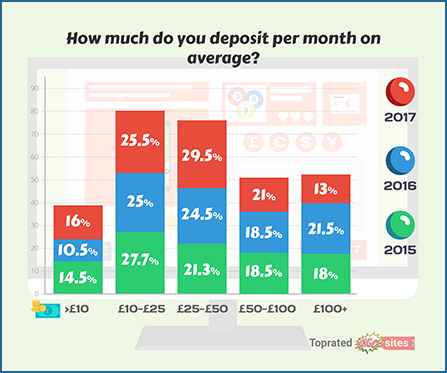
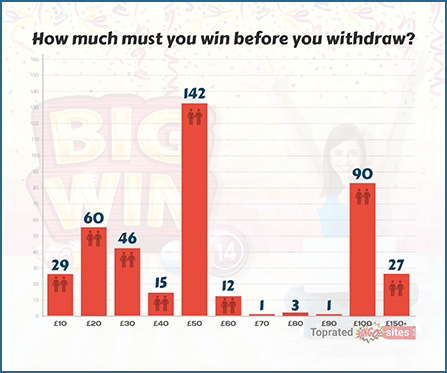
Over the last year, there has been a significant increase in players who enjoy the community at their current site. People are more likely to come back for promotions and loyalty treats at a website they’ve signed up with, rather than chase welcome bonuses.
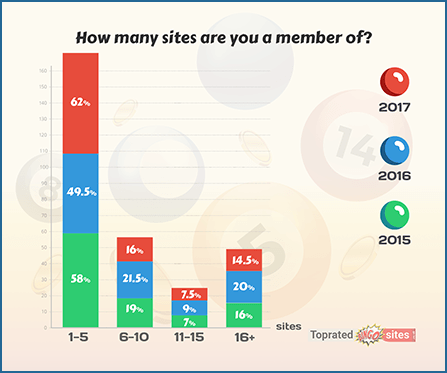
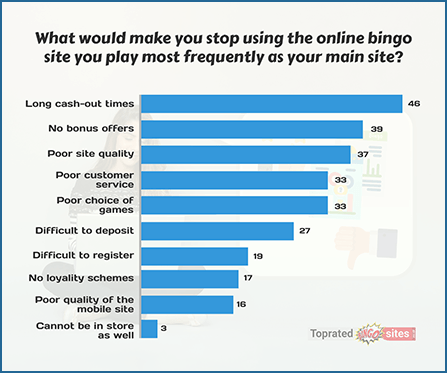
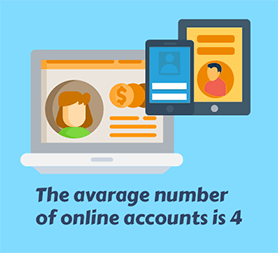
Facebook is still reigning supreme
Younger players joining the online bingo communities has also changed brands’ social media engagement. Although TV ads remain the most popular form of marketing, social media and video sharing platforms are gaining popularity among players.
Key Findings:
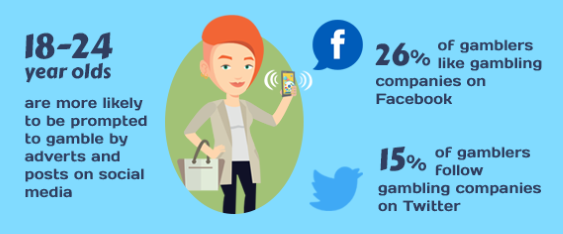

We do not sell or share your information with anyone. You may unsubscribe at any time.
Trending
